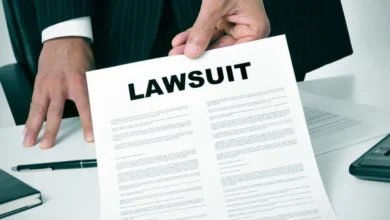Legal Rights and Responsibilities in Personal Injury Cases

Personal injury cases arise when an individual suffers harm due to someone else’s negligence or intentional act. Understanding your legal rights and responsibilities in these situations is crucial for protecting your interests and ensuring fair compensation.
This article will delve into the essentials of personal injury law, offering a comprehensive guide to navigating these complex cases.
Understanding Personal Injury Law
Personal injury law, also known as tort law, covers a wide range of incidents where an individual is injured. These can include car accidents, slip and fall incidents, medical malpractice, and more. The primary goal of personal injury law is to provide relief to the injured party and deter others from committing similar offenses.
Key Legal Rights in Personal Injury Cases
Right to Compensation
One of the most fundamental rights in personal injury cases is the right to seek compensation for your injuries. Compensation can cover various damages, including medical expenses, lost wages, pain and suffering, and more. The aim is to restore the injured party to their pre-incident state as much as possible.
Right to Legal Representation
Victims of personal injury have the right to hire an attorney to represent their interests. If you’ve been involved in a car accident, an experienced automobile injury attorney can provide invaluable assistance, from gathering evidence and negotiating with insurance companies to representing you in court if necessary. Having legal representation often increases the chances of receiving a fair settlement.
Right to a Fair Trial
If a settlement cannot be reached, you have the right to take your case to court. In a trial, a judge or jury will hear the evidence and determine the outcome. This ensures that you have a platform to present your case fully and seek justice.
Right to File a Bodily Injury Claim
When you suffer physical harm due to another party’s negligence, you have the right to file a bodily injury claim. This legal action aims to recover damages specifically related to physical injuries sustained in an accident.
Legal Responsibilities in Personal Injury Cases
Duty to Mitigate Damages
As an injured party, you have the responsibility to mitigate, or minimize, your damages. This means you must take reasonable steps to reduce the impact of your injuries, such as seeking timely medical treatment and following your doctor’s advice. Failure to do so can affect the amount of compensation you receive.
Duty to Provide Evidence
To succeed in a personal injury claim, you must provide evidence that supports your case. This includes medical records, witness statements, photographs of the accident scene, and any other relevant documentation. The burden of proof lies with the injured party, so collecting and preserving evidence is crucial.
Duty to Be Honest
Honesty is paramount in personal injury cases. Providing false information or exaggerating your injuries can severely damage your credibility and harm your case. Always be truthful with your attorney, medical providers, and the court.
The Process of a Personal Injury Case
Initial Consultation and Investigation
The first step in a personal injury case is to consult with an attorney. During this meeting, the attorney will evaluate your case and explain your legal options. If you decide to proceed, the attorney will begin an investigation to gather evidence and build a strong case.
Filing a Claim
Once sufficient evidence is collected, your attorney will file a claim with the at-fault party’s insurance company. This claim outlines the details of the incident, the injuries sustained, and the compensation sought. The insurance company will then investigate the claim and decide whether to accept or deny it.
Negotiation and Settlement
Most personal injury cases are resolved through negotiation. Your attorney will negotiate with the insurance company to reach a fair settlement. If an agreement is reached, the case is settled without going to court. Settlements typically cover medical expenses, lost wages, and other related costs.
Trial
If a settlement cannot be reached, your case may go to trial. During the trial, both sides will present their evidence and arguments. A judge or jury will then decide the outcome. Trials can be lengthy and complex, so having an experienced attorney is essential.
To wrap up
Personal injury cases can be daunting, but understanding your legal rights and responsibilities can make the process more manageable. If you have been injured due to someone else’s negligence, remember that you have the right to seek compensation, hire legal representation, and pursue justice through the court system if necessary.
It’s crucial to fulfill your responsibilities, such as mitigating damages, providing evidence, and being honest throughout the process. By doing so, you can protect your interests and work towards a fair resolution of your case.
Whether you’re filing a bodily injury claim or navigating other aspects of a personal injury case, having the right knowledge and support can make all the difference. If you find yourself in such a situation, don’t hesitate to consult with a qualified personal injury attorney to ensure your rights are fully protected.



